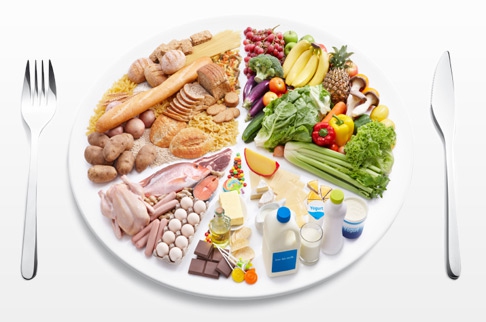Healthy eating is important since it can boost your children’s energy and sharpen their young minds. The biggest obstacle is instilling healthy habits that your child can follow and enjoy. You can do this by following dietary guidelines for children. These guidelines can help your child to grow healthier and more confident adults later on.

Dietary Guidelines and Recommendations for Toddlers and Young Children
Fruits and vegetables. You can give two servings of fruits and vegetables to your toddlers and young children. Give carrot slices and apple chunks as part of their snack. Veggies are also best added in soups.
Milk and dairy. For milk and dairy, prepare three servings of whole milk daily. Aside from milk, cheeses and yogurt are better calcium sources.
Whole grains. Whole grains should also be part of dietary recommendation for young children. Best source of whole grains are wheat bread, brown rice, multigrain toast and buckwheat pancakes.
Protein. Protein is best served twice a day. Give your child a variety of protein sources like lentils, baked beans, eggs, fish and turkey.
Vitamins and minerals. For vitamins and minerals, discuss with a doctor if your kid is meeting the recommended vitamins and minerals for the age.
Dietary Guidelines and Recommendations for School Age Children
Vegetables. For vegetables, 3-5 servings are required per day. One serving of one leafy vegetable along with ¾ cup of vegetable juice and ½ cup of cooked vegetable is recommended.
Fruits. For fruits, 2-4 servings daily are good. Serve medium size fruits like pear, banana and apple.
Dairy. Dairy products should be 2-3 servings every day. Good choices are low-fat milk, natural cheese and yogurt.
Whole grains. Whole grains servings should be around 6-11 servings per day. Per serving should be 1 slice of bread, 1 ounce of cereal and ½ cup of rice.
Protein. Protein sources should be served 2-3 times per day. Good sources of protein are poultry, lean meat and fish. Other sources are dry beans, eggs and peanut butter.
Vitamins. For vitamins, zinc is recommended since it improves school performance and memory. Good sources of zinc are nuts, milk, poultry, whole grains, oysters, liver and fortified cereals.
Special Nutritional Requirement for Teens
Calories. Calories are required by teens. Boys may require 2,500-2,800 caloric needs per day while girls may only require 2,200 calories per day. Good sources of calories are low-fat dairy, lean protein, fruits, veggies and whole grains.
Protein. Protein is needed for muscle growth. Teens should consume 45-60g of protein to meet this requirement. Best sources of protein are dairy, fish and meat.
Calcium. Most teen do not meet the required calcium requirement for their age, thus resulting to weaker bones. Encourage your teen to reduce drinking soda and sugary drinks, which deplete calcium in the body. Eating foods rich in calcium like calcium-fortified juice, leafy vegetable and cereal are ideal.
Iron. Anemia is another problem with teens. Anemia deficiency can lead to lethargy and weakness. Boys should have 12 milligrams of iron while girls should take 15 milligrams. Good sources of iron are beans, whole grains, leafy vegetables, chicken meat and red meat.

View All Comments /Add Comment